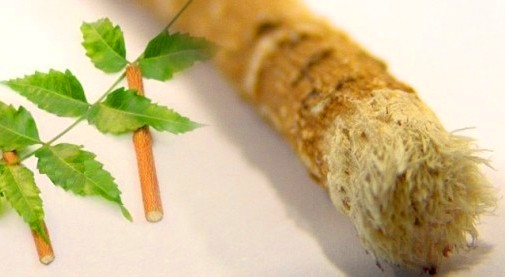
Scope
This Hindu Compliance System gives direction on use of toothbrushes for householders and practicing monks. For thousands of years, Hindus have been using Neem and other twigs for brushing their teeth which are organic, nature friendly and with numerous benefits. This standard will help organizations, businesses to create the natural alternatives for toothbrushes as mentioned in Hindu Scriptures. This will also be applicable to the following:
— organizations seeking sustained success through the implementation of a standard parameters for sizes;
— customers seeking confidence in an organization’s ability to consistently provide products and services conforming to their requirements;
— organizations seeking confidence in their supply chain to ensure that the product and service requirements are met;
— organizations and interested parties seeking to improve communication through a common understanding of the vocabulary used in quality management;
— organizations performing conformity assessments against the requirements of making of Toothbrush;
— providers of training, assessment or advice in quality control & management;
— developers of related standards.
Fundamental Concepts and Principles
- Ascetics [1] should use twigs got from trees like
- kaaranja (Pngamia Pinnata)
- arjuna (Terminalia Arjuna)
- jaambuu (Szygium cumini Linn)
- Gruhastas [2], Vanaprastha [3] and Brahmachari [4] should use twigs from
- plaksha (Ficus religiosa)
- udumbara (Ficus racemosa)
- punnaaga (Calophyllum inophyllum)
- kakubha (Terminalia Arjuna)
- khaadira (Acacia catechu)
- aamra (Mango)
- badarii (Ziziphus mauritiana Lamk)
- nimba (Neem tree)
- kalhaara (Nymphaeaceae Nymphaea)
References
The above standards have been taken into consideration from Kirana Agama, carya pada which is foremost amongst the śaiva-agama. At the time of publication, the edition indicated was valid. All the standards are subjected to revision considering that it is compliant to veda-āgama. All the interested parties are encouraged to investigate the possibility of applying the improvements in above standards.
दन्तकाष्ठं ततो वक्ष्ये त्वपामार्गमयं ऋजुम् || ९
कारञ्जार्जुनजम्बूकैः कर्षणीयं तपोधनैः |
प्लक्षोदुम्बर पुन्नाग ककुभं कोहादिराम्रजम् || १०
बदरीनिम्बकल्हारं वानप्रस्थादिभिस्त्रिभिः | ११
dantakāṣṭhaṃ tato vakṣye tvapāmārgamayaṃ ṛjum || 9
kārañjārjunajambūkaiḥ karṣaṇīyaṃ tapodhanaiḥ |
plakṣodumbara punnāga kakubhaṃ kohādirāmrajam || 10
badarīnimbakalhāraṃ vānaprasthādibhistribhiḥ | 11
Terminology and Definitions
- Ascetics: An ascetic person has a way of life that is simple and strict, usually because of their religious beliefs.
- Grhastha: Grihastha literally means "being in and occupied with home, family" or "householder"
- Vanprastha: means "one who gives up worldly life".
- Brahmchari: is a concept within Indian religions that literally means "conduct consistent with Brahman" or "one who is on the path of Brahman".
Hindu Compliance Body
The Hindu compliance body was established under the executive order of The Supreme Pontiff of Hinduism, dated August 14, 2020, order number 10010, under the title Reviving the Hindu Compliance System and Body
to create, promote, spread and teach the standard procedures for all products and services that are in compliance Hindu Shastras.
Copyright
HCS has the copyright of all its publications. No part of these publications may be reproduced in any form without the prior permission in writing to HCS. This does not preclude the free use, in the course of implementing standard, of necessary details mentioned above. Enquiries related to copyrights to be addressed to KAILASA.